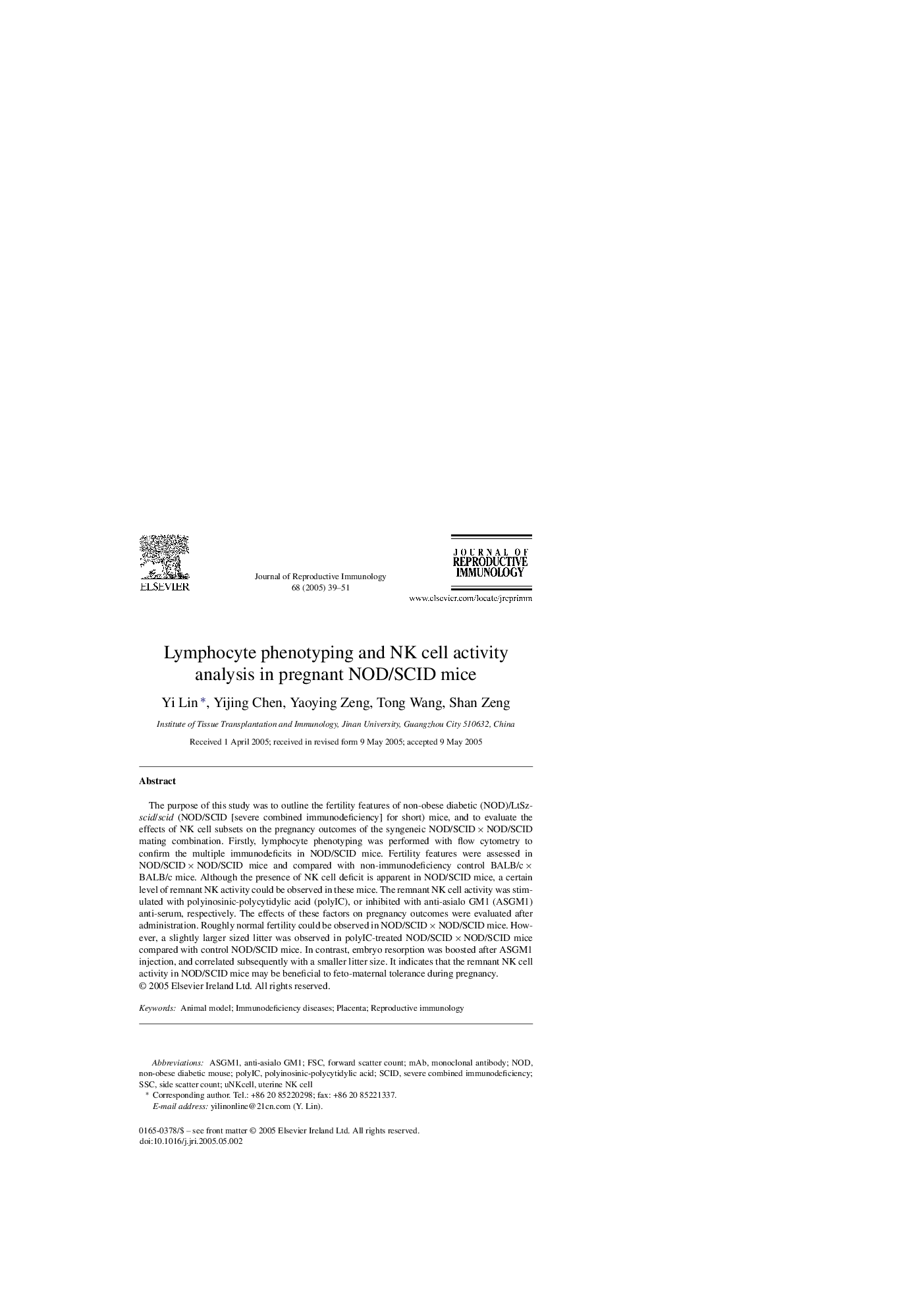| Article ID | Journal | Published Year | Pages | File Type |
|---|---|---|---|---|
| 9331486 | Journal of Reproductive Immunology | 2005 | 13 Pages |
Abstract
The purpose of this study was to outline the fertility features of non-obese diabetic (NOD)/LtSz-scid/scid (NOD/SCID [severe combined immunodeficiency] for short) mice, and to evaluate the effects of NK cell subsets on the pregnancy outcomes of the syngeneic NOD/SCID Ã NOD/SCID mating combination. Firstly, lymphocyte phenotyping was performed with flow cytometry to confirm the multiple immunodeficits in NOD/SCID mice. Fertility features were assessed in NOD/SCID Ã NOD/SCID mice and compared with non-immunodeficiency control BALB/c Ã BALB/c mice. Although the presence of NK cell deficit is apparent in NOD/SCID mice, a certain level of remnant NK activity could be observed in these mice. The remnant NK cell activity was stimulated with polyinosinic-polycytidylic acid (polyIC), or inhibited with anti-asialo GM1 (ASGM1) anti-serum, respectively. The effects of these factors on pregnancy outcomes were evaluated after administration. Roughly normal fertility could be observed in NOD/SCID Ã NOD/SCID mice. However, a slightly larger sized litter was observed in polyIC-treated NOD/SCID Ã NOD/SCID mice compared with control NOD/SCID mice. In contrast, embryo resorption was boosted after ASGM1 injection, and correlated subsequently with a smaller litter size. It indicates that the remnant NK cell activity in NOD/SCID mice may be beneficial to feto-maternal tolerance during pregnancy.
Keywords
Related Topics
Life Sciences
Immunology and Microbiology
Immunology
Authors
Yi Lin, Yijing Chen, Yaoying Zeng, Tong Wang, Shan Zeng,
